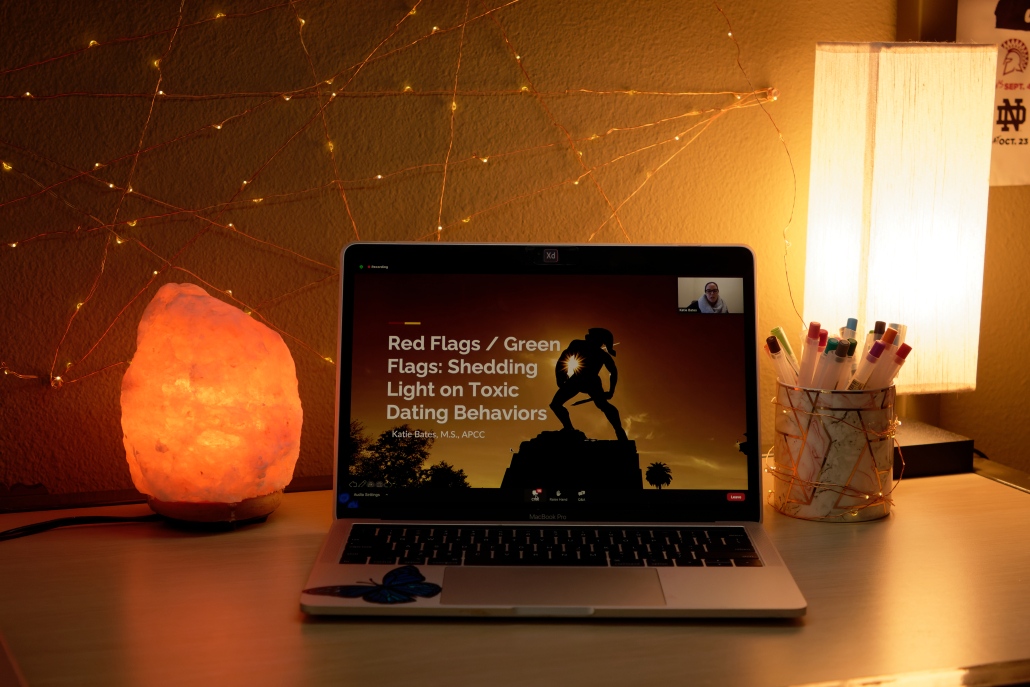Panel discusses toxic dating behaviors

Content warning: This article contains references of sexual violence.
Panelists discussed the “red and green flags” of relationship behaviors to help people understand the components of maintaining a healthy and consensual relationship at a virtual event Wednesday.
Hosted by USC Relationship and Sexual Violence Prevention and Services, the event, titled “Red flags and green flags: Shedding light on toxic dating behaviors,” focused on identifying toxic traits, why people find themselves stuck in abusive relationships and how to help those who are affected.
The discussion featured three panelists: Chief Program Officer at the People Concern, TuLynn Smylie, Vivian Engle, a clinician at Jewish Family Services Los Angeles, and Katie Bates, a violence prevention educator at the relationship and sexual violence prevention and service branch of the Keck School of Medicine.
Engle explained the intricacies of an abusive relationship and how subtle some red flags may be. For example, Engle said gaslighting puts the victim in an uncomfortable situation that they may feel responsible for.
“[Victims] don’t want to talk to [friends and family] about what’s going on,” Engle said. “You feel embarrassed, ashamed, the isolation piece we talked about where you blame yourself. It’s part of the manipulation tactic and the gaslighting to make you feel responsible for everything.”
Sendy Ramirez, a graduate student studying social work, attended the event to attain more perspective about sexual violence and gain an ability to educate others as a survivor of domestic survivor herself.
“I really appreciated that there was a thorough conversation about the red flags,” Ramirez said. “So many things that were discussed today that I saw in my relationship, that I saw in my abuser, but I didn’t have the knowledge or the awareness at the time to recognize them as red flags.”
The panelists emphasized the importance of having the ability to acknowledge potentially dangerous behavior early on, especially for college students who may find themselves in their first intimate relationship.
“Anybody can fall victim to intimate partner violence, and anyone can become an abuser too,” Smylie said. “The thing is with college-age students … it may be their first time away from home, they may be feeling lonely and isolated and getting involved in a relationship that if they were in any other circumstance they might not [be in].”
The discussion also focused on ways others can help those who face abuse in intimate relationships by becoming what Bates labeled a “pro-social upstander.”
“Somebody that steps in and does something positive that intervenes in a positive way is what we call pro-social upstander,” Bates said. “[To become a pro-social upstander] we consider the four D’s … delegating, distracting, directing or debriefing.”
Experts in sexual violence often use these four D’s as a strategy to teach people ways to insert themselves in situations that appear to be dangerous for a party involved.
The panelists made clear that their respective organizations accepted all victims, regardless of their identity or situation.
“I really appreciated the fact that all the panelists empowered the victims by taking the position of ‘Let’s not victim blame. Let’s stop asking ‘why does she leave, or he [leave],’” Ramirez said. “[The panelists were] here to be advocates, but [they were] really here in your corner, and it’s not just lip service.”

